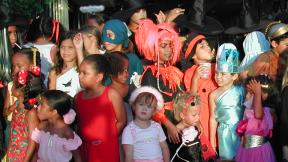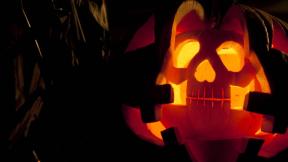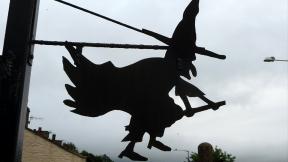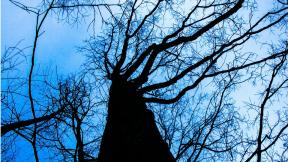
Muslims have a number of reasons to be leery of Halloween. But so do Christians.
A number of Christians object to Halloween, seeing it as more than a costume and candy day of fun for kids (and adults). They connect their disapproval to the pagan and Satanic origins of Halloween.
As Anderson M. Rearick III writes in the October 2, 2000 issue of Christianity Today, these Christians tell him "'But look at the roots of Halloween,' some may say 'Don't' you see how evil it once was?'" One of his students even called it "Satan's Holiday."
Historically, Halloween has been tied to pagans, like the Druids. Samhain was the name of the Druid god of the dead. The Druids were a religious order amongst the Celts. On this day (October 31), they would try to appease their lord of death. These Druids also believed that witches rode on broom sticks and that ghosts were the cause of supernatural occurrences.
The belief was that on the eve of the Celtic New Year (which for them was October 31), the souls of the dead people roamed the land of the living. The Devil, spirits and witches were also believed to be moving about and at the height of their power.
An anti- anti-Halloween view
But Rearick III, an assailant professor of English at Mount Vernon Nazarene College in Ohio, disagrees with what he calls the "anti-Halloween party" of Christians.
While he recognizes their well-intentioned efforts, his view is that Christians need to "reclaim" Halloween.
"Christians certainly may be leery of sharing anything with modern pagans and Satanists who claim Halloween as theirs. But who gave these individuals the right to claim the holiday?" he writes.
Rearick III also notes how present-day Christian holidays and traditions that are a well-entrenched aspect of Christian culture were once considered fearful and evil. He gives Christmas time as an example.
"Toward the time of the winter solstice, the days became shorter and colder. The land was laid waste. In pagan times, to keep the fire of the life-giving sun alight, people often made sacrifices before a great oak tree. Boniface is supposed to have stopped one such sacrifice and instituted the indoor Christmas tree at the same time. The burning of such logs in the midst of sacrifice has come down to us as the traditions of burning Yule logs and enjoying Christmas trees.
"For our pagan ancestors, the holidays that marked the great seasonal changes were often fearful, terrible, and dark. But with the coming of Christ came a great light that reclaimed not only individuals but also the holidays they celebrated," he says.
Rearick feels the pagan origins of Halloween are a thing of the past, and Christians should be using Halloween as a time to really laugh at the Devil.
"The one thing Satan cannot bear is to be a source of laughter. His pride is undermined by his own knowledge that his infernal rebellion against God is in reality an absurd farce," he writes.
He feels that Christians who spend the night of October 31 filled with concern over what evils might be (and sometimes are) taking place are giving Satan's authority credence.
Rearick III doubts the "anti-Halloween party" will be successful in its efforts to boycott Halloween, as the example of Protestant Christians in the 17th century who boycotted Christmas because of its pagan and Roman Catholic origin makes clear.
"I'm glad those believers-however well-intended-failed. How bleak and desolate would a winter's December be without Christmas!" he writes.
Photo Attribution: http://commons.wikimedia.org/wiki/Halloween#mediaviewer/File:Happy_Halloween_1!.jpg
http://commons.wikimedia.org/wiki/Halloween#mediaviewer/File:Halloween_pumpkin,_Sanok_2012.JPG








Add new comment